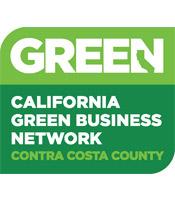Businesses Pollution Prevention Programs
Pollution Prevention Programs for Businesses
Central San is a leader in pollution prevention in the Bay Area. We offer a number of programs to help your business. Discover how your business can protect the environment.
Hazardous Waste Disposal for Small Businesses
Below you will find the information and instructions for the Conditionally Exempt Small Quantity Generator Program.
Eligible Businesses
Non-profit groups, landlords, condo operators, contractors, small businesses and any other organization or commercial entity that meets the following criteria:
Pollution Prevention Awards
Presenting the 2025 Pollution Prevention Award Winners
Central San conducts its Pollution Prevention Awards program each year in conjunction with National Pollution Prevention Week, the third week of September. Since initiating the program in 1992, Central San has recognized more than 100 local businesses for their exceptional efforts to minimize pollution.
Shop Green Businesses
The Green Business Program recognizes businesses that comply with all environmental regulations and take action to conserve resources and prevent pollution.
Currently the Green Business Program has certified a number of businesses in Contra Costa County. To sign up to be a Green Business or to find Green Businesses in your area, go to: www.greenbusinessca.org.
Stormwater Program
Central San works with the Contra Costa Clean Water Program (CWP) to perform storm water inspections in the ten incorporated cities of central Contra Costa County. The cities have authorized Environmental Compliance staff to conduct inspections of commercial/industrial businesses and to enforce storm water management ordinances to prevent storm water pollution. Central San inspectors combine these inspections with the sanitary sewer compliance inspections whenever possible to reduce the number of inspection visits required for a business.
Best Management Practices
Best Management Practices (BMPs) facilitate regulatory compliance by going beyond established minimum requirements. There are ways of carrying out your business activities that can significantly reduce the risk of pollution and may even save you money. BMPs are good for the environment, your customers, and your business. Check out these BMP Fact Sheets for more information.
- Keeping a Clean Shop
- Storm Drains and Sanitary Sewers - Different Systems, Different Rules
- Good Storage Practices
- Vehicle Washing
- Vehicle Repair and Maintenance
- Floor Cleaning Guidelines
- Sand/Oil Interceptor Maintenance
- Do Not Dump Chemicals or Hazardous Materials Down the Drain
- Fats, Oils, & Grease (FOG) Fact Sheet
- Grease Interceptor Maintenance Fact Sheet
- Grease Trap Maintenance Fact Sheet
- Pharmaceutical Waste Disposal for Businesses
- Mercury Fact Sheet
- Mobile Washer Fact Sheet
- Source Control Requirements for Morgues & Mortuaries
- Paint Disposal and Cleanup
- Fact Sheet on Tributyltin
- Waste Reduction in the Photo Processing Industry
- Preventing Copper Pollution
- Maintaining Pools, Spas and Fountains
- Properly Draining Pools, Spas and Fountains
- Community Car Wash Guide
- Grease Hauler List
- Property Management Fact Sheet
- Trash Enclosure Area Daily Inspection Log
- Sand-Oil Interceptor/Separator Hauler List
- Read more
Dental Amalgam Program – Local Dentist Helping to Reduce Mercury Pollution
Thanks to the cooperation of the dental community of central Contra Costa County, we’ve achieved a remarkable 75% decrease in the amount of mercury being discharged into Suisun Bay since the Dental Amalgam Program began!
Mercury is one of the most toxic substances known. For decades, Central San has been employing an assortment of techniques to reduce mercury pollution of our local water environment—and continues to do so. One of our most successful mercury-reduction efforts has been our partnership with local dentists.
School Mercury Minimization Program
Mercury is a highly toxic metal that causes water pollution problems at very low concentrations. One of the many ways we’re working to keep mercury out of the environment is by helping schools in our service area to identify and reduce mercury sources in their chemistry labs and facility operations.
In addition to on-site meetings with school administrators, chemistry teachers, and facility maintenance staff during which we share tips on how they can reduce mercury in their school, we offer:

